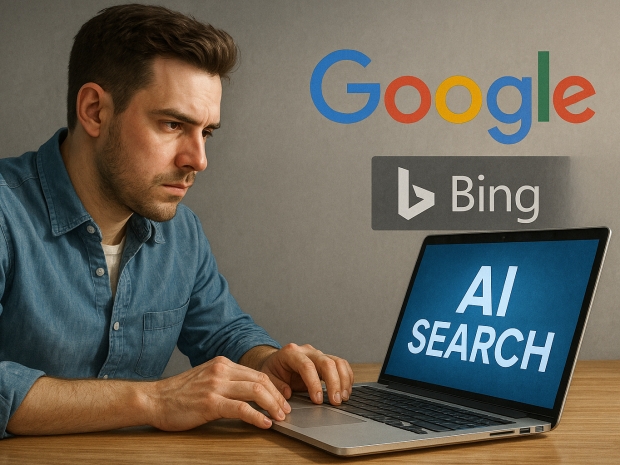Datos, a market intelligence outfit owned by Semrush, reckons 5.6 per cent of US desktop search traffic last month went to AI-powered large language models like ChatGPT or Perplexity. Google and Microsoft’s Bing still hold the bulk with 94.4 per cent, though they’ve started slapping AI summaries at the top of results to fight back.
That 5.6 per cent might sound small, but it’s more than double the 2.48 per cent recorded in June 2024 and over four times the figure from January 2024, when AI search barely scraped 1.3 per cent. Datos says it tracks more than 10 million anonymous desktop users worldwide but doesn’t count mobile browsing or app use, meaning the real numbers could be even higher.
Datos chief executive Eli Goodman called the growth “a sea change in online behaviour,” likening it to the arrival of Google’s browser or the first wave of social media platforms. Early adopters are even more hooked with 40 per cent of their desktop visits now go to AI tools, up from just 24 per cent a year ago. Traditional search engines among this group slumped from 76 per cent to 61 per cent in the same time.
Sensor Tower data adds another gloomy note for old-school search. It found the time people spent on traditional search apps and websites globally dropped three per cent between April 2024 and April 2025, with early adopters halving that again.
Google insists its core search is still growing. A spokeswoman said AI overviews are leading to “more queries that connect consumers to businesses,” though publishers would argue otherwise. Organic traffic to major sites like Business Insider, the Washington Post and HuffPost has nosedived over the past three years, with news execs blaming AI answers that satisfy users without a single click.
Dotdash Meredith chief executive Neil Vogel said this shift leaves brands sweating. Unlike a search page full of links, large language models spit out one answer, giving businesses fewer chances to appear. “All the brands are terrified they’re not going to be included in these AI answers,” he said.
Unsurprisingly, a crop of AI-optimisation startups has popped up, promising to help marketers stay visible. Goodman warned that brands should not panic just yet—search engines still dominate and remain embedded in the smartphones glued to most people’s hands.
He added that most AI queries are “informational or productivity-based: Help me solve this problem, help me answer this question,” while traditional search was designed to push users towards other sites.
Media, Ads + Commerce founder Andrew Lipsman reckons AI chatbots aren’t killing traditional search, just adding another marketing channel. He compared it to the rise of smartphones, which didn’t kill desktop browsing despite all the hype.
The next big shift could come when AI replies start carrying ads, forcing brands to cough up new marketing budgets. OpenAI claims it isn’t touching ads, but Perplexity is testing sponsored searches and has hired a head of advertising and shopping.
Perplexity launched Comet, a browser that defaults to AI instead of Google or Bing, promising users “the choice to navigate the web.” Reuters recently reported that OpenAI is preparing its browser, but the company kept schtum.
For now, the big players are circling, and the cocaine nose jobs of Wall Street will be watching to see who grabs the future of search.




